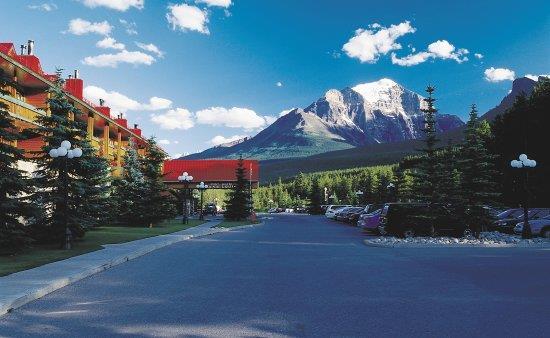

Planning a successful restaurant event is a great way to showcase your restaurant’s offerings, attract new customers, and create memorable experiences for guests. Whether you're organizing a corporate event, a wedding rehearsal dinner, or a special promotion, the key to a successful event lies in meticulous planning. The goal is to ensure that everything runs smoothly from start to finish, leaving your guests impressed and eager to return.
This article will guide you through the essential tips and steps to planning a successful restaurant event. By following these strategies, you will not only enhance the experience for your guests but also maximize your restaurant's potential for growth.

Understand the Purpose of the Event
The first step in planning a raclette restaurant event is to define its purpose. Why are you hosting this event? Is it for a celebration, a promotional activity, a seasonal offering, or a corporate gathering? Understanding the event's purpose helps you tailor the event to your target audience.

For instance, if you're hosting a wine and dine evening, the focus will be on pairing food with drinks. If it’s a birthday or anniversary celebration, the goal will be to create a festive and enjoyable atmosphere.
Once the purpose is clear, it’s easier to choose the right menu, decorations, and entertainment. Setting a clear objective for the event will also help you prioritize your efforts and resources.
Choose the Right Date and Time
Timing is crucial when planning a restaurant event. Selecting the right date and time can make a significant impact on the event’s success. Consider factors such as holidays, local events, and peak restaurant times when setting your event date. If you're hosting a promotional event, avoid scheduling it during major holidays or events that might compete for attention.
It’s also important to factor in your restaurant’s regular operating hours. For example, hosting an event during off-peak times can help attract customers who might not normally visit. Conversely, hosting an event during peak dining times can create a vibrant, energetic atmosphere. You’ll also want to ensure you have the necessary staff on hand to accommodate the extra demand.
Create an Event Concept That Aligns with Your Brand
Every restaurant has its unique theme or concept, whether it’s fine dining, casual, or themed. Your event should reflect that concept to maintain brand consistency. For example, if your restaurant specializes in Italian cuisine, consider hosting a Tuscan wine and cheese night with local Italian wines and small bites.
The event concept is not just about food it also includes the ambiance and experience. Think about how you can create a memorable atmosphere that matches the theme. This might involve setting up the space with decorations, lighting, and music that reflect the essence of the event. For a seafood-focused event, nautical décor could be an option. For a more upscale affair, you might want elegant table settings, mood lighting, and soft background music.

Craft a Memorable Menu
Food is, of course, at the heart of any restaurant event. Crafting a memorable menu that suits the theme and caters to your guests' preferences is key to the success of your event. When planning the menu consider offering a variety of options to accommodate dietary preferences such as vegetarian, gluten-free, or vegan choices.
If you’re planning a set menu, consider offering a few different courses to give your guests a comprehensive taste of your restaurant’s offerings. You can also get creative with themed cocktails or wine pairings, which can add a fun and interactive element to the event.

Provide Excellent Customer Service
Guests should feel welcome from the moment they arrive to the moment they leave. Train your staff to handle the unique needs of an event, especially when managing larger groups or specialized services. Excellent customer service is one of the most important factors in ensuring a successful restaurant event Your staff should be knowledgeable about the event's offerings, such as the menu, drink pairings, or any special promotions.

Consider having a dedicated event coordinator to oversee the logistics and keep everything running smoothly. This person can address issues promptly, manage time effectively, and ensure that the event stays on track.
Promote the Event
Effective promotion is essential for attracting guests and ensuring a successful event. Social media is one of the most powerful tools for promoting your restaurant event. Share event details across your restaurant’s social media platforms and create event pages or special posts with compelling images, videos, and event information. Additionally, use your website to promote the event, and consider sending out email invitations or newsletters to your regular customers.
Add Entertainment or Special Activities
Entertainment or special activities can elevate the guest experience and make your event memorable. Depending on the type of event, you might consider live music, guest speakers, cooking demonstrations, or even themed activities that tie into your event’s concept. For example, a wine pairing dinner could include a sommelier talking about the different wines served throughout the evening.
Incorporating interactive elements like games or raffles can also enhance the experience. A cooking class or a behind-the-scenes tour of your restaurant could be a unique addition that excites guests. By offering more than just a meal, you create an engaging and dynamic atmosphere that encourages guests to spend more time at the event.
Follow Up After the Event
Once the event has concluded, it’s important to follow up with your guests to maintain the connection and build lasting relationships. Send a thank-you note or email to all attendees to express appreciation for their participation. This small gesture can make a big difference in how your feel about your restaurant and their likelihood of returning in the future. Additionally, use the feedback you’ve received from guests to improve future events. You can encourage guests to share their thoughts via surveys or social media posts, which helps you refine your offerings and better understand their preferences.

FAQs
1. What is the best way to promote a restaurant event?
The best way to promote a restaurant event is by leveraging social media platforms, creating engaging event pages, and using email marketing. Partnering with local influencers and bloggers can also amplify your reach.
2. How far in advance should I plan my restaurant event?
Ideally, you should plan your event at least 4–6 weeks in advance to allow ample time for promotion, menu planning, and logistical preparation.
3. What type of events should I host at my restaurant?
You can host a variety of events at your restaurant, such as wine and dine nights, live music performances, cooking classes, corporate events, holiday celebrations, and themed dinners.
4. How can I ensure excellent customer service during an event?
Train your staff to be knowledgeable about the event’s offerings and ensure there is a dedicated coordinator to handle logistics. Make sure the staff is attentive, friendly, and prepared to manage large groups or special requests.
5. Should I offer a set menu or à la carte during a restaurant event?
This depends on the nature of the event. A set menu often works well for themed events or special promotions, while à la carte can be a good option for events that allow more flexibility for guests.
6. How can I make my event stand out from others?
To make your event stand out, consider adding unique elements such as live entertainment, interactive activities, personalized service, or a creative theme that resonates with your brand and target audience.

Final Thoughts
Planning a successful restaurant event requires careful attention to detail, a clear understanding of your goals, and a focus on creating an exceptional experience for your guests. From choosing the right date and crafting a memorable menu to promoting the event and providing outstanding customer service, each step plays a crucial role in ensuring success. By implementing these tips and paying attention to every aspect of your event, you can create an unforgettable experience that will leave guests talking long after the event has ended.
